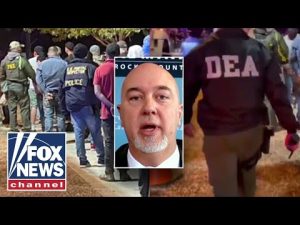The U.S. government has restarted aggressive student loan collections after years of leniency, targeting over 5 million borrowers who defaulted on payments. Wage garnishments and tax refund seizures are now mandatory for those who ignored their debt, with Education Secretary Linda McMahon declaring an end to “irresponsible policies” that shifted burdens to taxpayers.
Borrowers who skipped payments for 270 days face harsh consequences under the revived system. The Department of Education will confiscate wages, suspend professional licenses, and block access to federal benefits like Social Security checks. This crackdown reverses the Biden administration’s stalled debt cancellation plans, which courts ruled unconstitutional.
Secretary McMahon blasted previous leadership for misleading Americans into thinking loans would “magically disappear.” Taxpayers already absorbed hundreds of billions in forgiven debt, she said, vowing to uphold fiscal responsibility. The move prioritizes protecting public funds over shielding borrowers from the results of “poor financial choices.”
Defaulted borrowers will lose eligibility for repayment plans, loan deferments, and future student aid. Those with degrees in low-demand fields face particular hardship, as garnishments hit paychecks regardless of income. Conservative commentators argue this proves “useless degrees” don’t excuse fiscal obligations.
The Trump administration emphasized that borrowers “voluntarily” took loans and must honor contracts. Collections will proceed through employers, who must legally withhold up to 15% of defaulters’ wages. Critics call it heartless, but supporters say it’s the only way to stabilize the $1.6 trillion student debt crisis.
Over 30 states allow license suspensions for defaulters, barring teachers, nurses, and others from working until debts are addressed. Proponents say this accountability prevents abuse of taxpayer-funded programs. “Uncle Sam isn’t a charity,” one policy analyst noted. “You can’t ignore the bill for ideological degrees.”
The Department rejected calls for extended relief, stating the law requires repayment. Officials highlighted that default rates dropped 30% since pre-pandemic levels, proving stricter oversight works. Borrowers are urged to contact loan servicers immediately to avoid penalties.
This hardline approach reflects growing conservative frustration with “endless excuses” for financial irresponsibility. As one taxpayer advocate put it: “You took the money — now do the right thing and pay it back.” The era of empty promises is over, and the debt machine is grinding forward.







